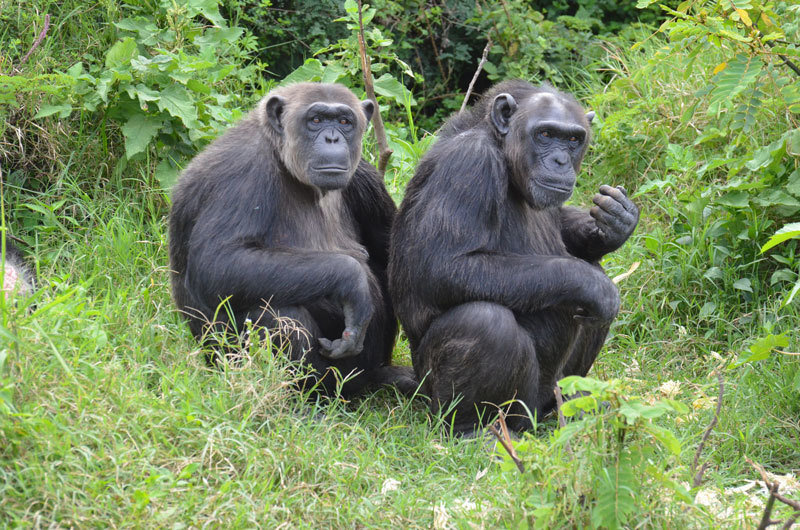(单词翻译:单击)
听力文本
Who knew that chimpanzees love to dance? They also like to clap along to music, and nod their head, tap their feet and move in time with the rhythm. A new study shows that chimpanzees could appreciate music. The researchers are from Kyoto University in Japan. They say their study could help us understand how early humans developed an interest in music. Researchers Dr Yuko Hattori and professor Masaki Tomonaga conducted tests on seven chimps. They played the apes six two-minute songs on a piano for six days. The researchers said the chimps had a definite sense of rhythm and it changed their mood. The male chimpanzees seemed to respond to the melodies more than the females.

The researchers wrote that chimpanzees could have passed on a liking for music and dance to early humans millions of years ago. This could have happened via a common ancestor around six million years ago. The researchers said the study suggested that our love of dancing was deep inside the earliest humans. Dr Hattori said: "Chimpanzees dance to some extent in the same way as humans." She added: "In humans, listening to music causes rhythmic movement, suggesting a close connection between the auditory and motor areas in the brain." She believes the research could shed light on the evolution of dancing in humans and why we love melody and rhythm so much
译文由可可原创,仅供学习交流使用,未经许可请勿转载。
重点解析
1.A new study shows that chimpanzees could appreciate music.
appreciate 欣赏
Anyone can appreciate our music.
任何人都能欣赏我们的音乐。
2.She believes the research could shed light on the evolution of dancing in humans and why we love melody and rhythm so much.
shed light on 阐明
A new approach offers an answer, and may shed light on an even bigger question.
新的方法提供了一个答案,并且可能让人们对一个更大的问题有进一步的了解。
参考翻译
谁知道黑猩猩热爱舞蹈?它们也喜欢随着音乐拍手还会跟着节奏点头、跺脚舞动。一项新研究表明黑猩猩能够欣赏音乐。这些研究人员来自日本的京都大学。他们表示,他们的研究可以帮助我们理解早期人类如何对音乐产生了兴趣。研究人员Yuko Hattori博士和Masaki Tomonaga教授对七只黑猩猩进行了测试。他们连续六天为这些黑猩猩弹奏六首两分钟的钢琴曲目。研究人员表示这些黑猩猩有明确的节奏感,这改变了它们的情绪。雄性黑猩猩似乎比雌性黑猩猩对音乐的反应更强烈。
研究人员写写道,黑猩猩可能在数百万年前就把对音乐和舞蹈的喜爱传给了早期人类。这一切的发生可能是通过600万年前的一个共同祖先为媒介。研究人员表示该研究表明我们对舞蹈的热爱深藏在早期人类的内心深处的。Hattori博士说到:“黑猩猩的跳舞方式在某种程度上和人类是一样的。”她还说道:“人类听着音乐会引起身体的律动,这表明听觉和大脑的运动区域之间有着密切的联系。”她认为该研究可以解释人类舞蹈的进化,以及为什么我们如此喜爱旋律和节奏。


